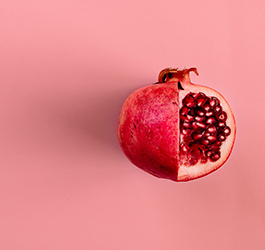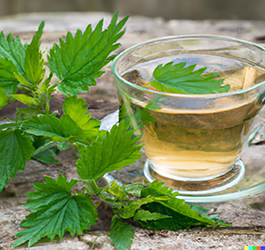Combat the Effects of Chronic Eczema the Natural Way

Eczema
Eczema is a type of skin inflammation also known as atopic dermatitis. It is an allergic and hereditary disease that can be chronic.
The cause of eczema is unclear. One possibility is that the condition is caused by a dysfunctional interplay between the immune system and the skin.
Eczema may appear in a rapid outbreak and then calm or it can appear in small changes with slow development. It can occur all over the body but mostly on the face, behind the ears and the knees, the neck, the hands, and the bends of the elbows.
Eczema affects 10-25% of the children (in the first five years of life) and 10-15% of the adults.
Its symptoms are often redness, itching, dryness, flaking, and crusting. In chronic eczema, the symptoms are color changes, thickening, and scaling.
People who have eczema are prone to asthma, hay fever, infections (especially staphylococcus aureus), and viruses.
Causes
- Clinical studies have shown that in patients with eczema the level of the allergic antibody IgE was usually elevated. When the immune system of allergic people contacts with some allergen, it recognizes and memoirs it because it considers as harmful to the body and so it produces some antibodies known as IgE. These antibodies are created to confront and neutralize this allergen.
- Another factor that causes symptoms such as eczema is the enormous augmentation of candida Albicans in the gastrointestinal system. (Candida albicans is a fungus that lives in our gastrointestinal tract, a constituent of the normal gut flora. Candida albicans are checked from the “good” bacteria of our gut and our immune system. When these “gut” bacteria are destroyed or our immune system is weakened, candida overgrowths unchecked and symptoms such as eczema emerges).
- Eczema may appear as a result of a food allergy. So it is necessary to avoid (especially for children) the common food allergens such as milk, eggs, peanuts, soy, chocolate, citrus, and fish.
- Studies have shown that mothers who avoided the food allergens during pregnancy and nursing offered significant protection to their babies against developing eczema.
- Factors that exacerbate eczema vary from person to person but the majority are prone to cold, humidity, rapid changes in temperature, anger, stress, impatience, disappointment, and contact with allergens, chemicals, wool, and hot water.
Recommendations
- In order to avoid an eczema outbreak, it is important to keep the body hydrated with suitable products.
- You can also prefer soft or cotton clothes.
- You must take one cool bath per day (with mild cleansing) and wipe gently without rubbing the body.
- You must keep your house humidified.
- It is also good to avoid rapid changes in temperature (if it is realizable) and activities which cause profuse sweating.
- Avoid food allergens from your diet.
- If you are pregnant reduce or avoid foods rich in linoleic acid. You can find it in vegetable oils (such as corn, safflower, soy, and sunflower).
- Add to your diet fish oil supplements that are rich in omega-3 fatty acids.
- Add also to your diet supplements that contain vitamin B complex, or vitamin B3, B12, biotin, vitamin C, vitamin D, vitamin E, zinc.
- The usual treatment is steroid cream and antihistamine medication.
Beneficial Herbs
External Use
|
Herb |
Form |
Benefits |
|
Aloe |
Gel |
Anti-inflammatory |
|
Borage seed |
Oil |
Anti-inflammatory, antiseptic (it contains salicylic acid), softening. |
|
Burdock root |
Oil, lotion, cream, ointment, tincture |
Antimicrobial, regulates the immune system. |
|
Calendula |
Oil, lotion, cream, ointment |
Anti-fungal, antiseptic, anti-inflammatory, moisturizing. Reduces redness |
|
Chamomile |
Oil, lotion, cream, ointment. |
Analgesic, anti-inflammatory, anti-bacterial and antiseptic. Softens and protects skin from bacteria. |
|
Chickweed |
Cream, oil, ointment |
Anti-inflammatory, soothing |
|
Copaiba |
Oil |
Anti-inflammatory, antibacterial |
|
Evening primrose Oil |
Oil |
Rich in GLA. Antimicrobial, anti-inflammatory |
|
Geranium |
Oil, lotion, cream, ointment |
Antispasmodic, soothing, anti-inflammatory. |
|
Lavender |
Oil, lotion, cream, ointment |
Anti-inflammatory. Regenerates skin cells |
|
Neem |
Cream, ointment, oil. |
Anti-inflammatory, analgesic, antibacterial. It can reduce redness and irritation. |
|
Marshmallow root |
Cream |
Anti-inflammatory, antibacterial, emollient. |
|
Red clover |
Oil |
Anti-inflammatory, anti-stress |
|
Rosemary |
Oil |
Antibacterial, antifungal, detoxifying. |
|
Walnut leaf |
Extract, tincture |
Anti-inflammatory |
|
Witch hazel |
Cream, oil |
Antibacterial, anti-inflammatory, antiseptic, astringent. |
Internal Use
|
Herb |
Form |
Benefits |
|
Black currant seed oil |
Capsule |
It contains GLA. It relieves skin diseases such as eczema. |
|
Burdock |
Tincture, tea |
Antimicrobial, regulates the immune system. |
|
Calendula |
Tincture, infusion |
Anti-fungal; antiseptic; anti-inflammatory; moisturizing. Reduces redness |
|
Chamomile |
Tincture, infusion, tea |
Analgesic, anti-inflammatory, anti-bacterial and antiseptic. Softens and protects skin from bacteria |
|
Evening primrose Oil |
Capsule |
Rich in GLA. Antimicrobial, anti-inflammatory. |
|
Geranium |
Tincture, infusion, tea |
Antispasmodic, soothing, anti-inflammatory. |
|
Lavender |
Tincture, infusion, tea. |
Anti-inflammatory. Regenerates skin cells. |
|
Marshmallow root |
Tincture. |
Anti-inflammatory, antibacterial, emollient. |
|
Neem |
Tincture. |
Anti-inflammatory, analgesic, antibacterial. It can reduce redness and irritation. |
|
Nettle |
Tincture, tea, infusion |
It contains zinc which can prevent or reduce the appearance of eczema. Nettle is also anti-inflammatory and detoxifying. |
|
Oregon grape root |
Extract |
Anti-inflammatory, detoxifying. |
|
Red clover |
Extract |
Anti-inflammatory, anti-stress |
|
Rosemary |
Tea |
Antibacterial, antifungal, detoxifying. |
|
Walnut leaf |
Tincture |
Anti-inflammatory |

 de
de el
el









